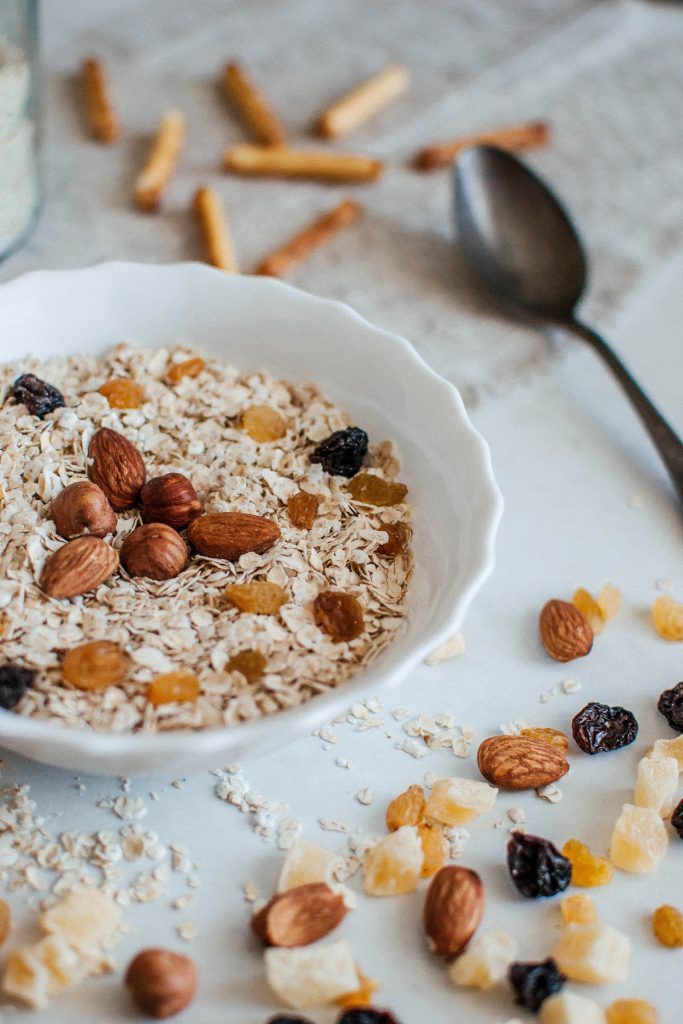In a world filled with fad diets and conflicting nutritional advice, it’s essential to cut through the noise and focus on the fundamentals of optimal nutrition. The food we consume plays a pivotal role in our overall well-being, influencing not only our physical health but also our mental and emotional states. In this comprehensive guide, we will explore the key principles of nutrition, emphasizing the importance of a balanced, nutrient-rich diet for a healthier and more vibrant life.
The Foundation: Macronutrients and Micronutrients
At the core of a well-rounded nutrition plan are macronutrients and micronutrients. Macronutrients, comprising carbohydrates, proteins, and fats, provide the energy our bodies need to function. Carbohydrates are the primary source of energy, proteins support muscle growth and repair, and fats are crucial for various bodily functions, including hormone production.
Micronutrients, on the other hand, encompass vitamins and minerals, each playing a unique role in maintaining optimal health. From vitamin A’s role in vision to the bone-strengthening properties of calcium, micronutrients are essential for the proper functioning of our organs and systems.
Building a Balanced Plate:
Creating a balanced plate involves incorporating a variety of foods that provide the necessary macronutrients and micronutrients. Aim for a colorful array of fruits and vegetables, as different hues often indicate diverse nutrient profiles. Whole grains, lean proteins, and healthy fats should also feature prominently in your meals.
- Fruits and Vegetables: These should make up a significant portion of your plate, as they are rich in vitamins, minerals, antioxidants, and fiber. The fiber content aids digestion and helps maintain a healthy weight.
- Whole Grains: Opt for whole grains over refined grains to maximize nutrient intake. Whole grains provide complex carbohydrates, fiber, and various essential nutrients, contributing to sustained energy levels.
- Lean Proteins: Include sources of lean protein such as poultry, fish, beans, and legumes in your diet. Protein is crucial for muscle health, immune function, and the production of enzymes and hormones.
- Healthy Fats: Incorporate sources of healthy fats, such as avocados, nuts, seeds, and olive oil. These fats support brain function, hormone production, and the absorption of fat-soluble vitamins.
The Role of Hydration:
Staying adequately hydrated is often overlooked but is a fundamental aspect of nutrition. Water is essential for digestion, nutrient absorption, temperature regulation, and the elimination of waste products. Aim to drink at least eight glasses of water a day, adjusting for factors like physical activity and climate.
Mindful Eating:
In our fast-paced lives, the importance of mindful eating cannot be overstated. Eating mindfully involves being present and fully engaged with your food, savoring each bite, and paying attention to hunger and fullness cues. This practice not only enhances the dining experience but also promotes better digestion and nutrient absorption.
Understanding Nutrient Density:
Nutrient density refers to the concentration of essential nutrients in a given food relative to its calorie content. Choosing nutrient-dense foods ensures that you get the most nutritional bang for your buck. Vegetables, fruits, lean proteins, and whole grains are excellent examples of nutrient-dense choices, providing a plethora of vitamins, minerals, and other vital nutrients without excessive calories.
The Impact of Processed Foods:
While convenience often drives us toward processed foods, they tend to be high in unhealthy fats, sugars, and sodium, and low in essential nutrients. Excessive consumption of processed foods has been linked to various health issues, including obesity, heart disease, and diabetes. Strive to limit your intake of processed foods and focus on whole, minimally processed options to optimize your nutrition.
Special Considerations:
Individual nutritional needs vary based on factors such as age, sex, activity level, and health conditions. Pregnant women, athletes, and those with specific health concerns may require customized nutrition plans. Consulting with a registered dietitian or healthcare professional can provide personalized guidance to meet specific nutritional needs.
The Power of Planning:
Planning your meals in advance can significantly contribute to achieving nutritional goals. By preparing a weekly meal plan, you can ensure that you have a variety of nutrient-dense foods readily available. This not only simplifies the cooking process but also helps you make intentional and health-conscious choices.
Portion Control:

While the quality of food is essential, so is the quantity. Portion control plays a vital role in maintaining a healthy weight and preventing overconsumption of calories. Be mindful of portion sizes, listen to your body’s hunger and fullness cues, and avoid the temptation to supersize meals.
The Mind-Body Connection:
Nutrition goes beyond physical health; it also deeply influences mental and emotional well-being. Certain nutrients, such as omega-3 fatty acids found in fish, have been linked to improved mood and cognitive function. Additionally, maintaining stable blood sugar levels through balanced nutrition can help prevent mood swings and energy crashes.
Experimenting with a Balanced Lifestyle:

Embarking on a journey towards optimal nutrition is not a one-size-fits-all endeavor. It involves experimenting with different foods and lifestyle choices to discover what works best for your unique needs. Pay attention to how your body responds to various foods, and be open to making adjustments as needed. It’s a dynamic process that evolves over time.
Educate Yourself:

Knowledge is a powerful tool on the path to better nutrition. Stay informed about the nutritional content of different foods, understand food labels, and stay abreast of current research on nutrition. This knowledge empowers you to make informed decisions about the foods you consume, fostering a sense of control and mindfulness.
Conclusion:
In conclusion, the journey towards optimal nutrition is a multifaceted endeavor that encompasses a variety of choices and practices. By building a plate rich in nutrient-dense foods, staying hydrated, practicing mindful eating, incorporating meal planning, being mindful of portion sizes, and staying informed, you can lay the groundwork for a healthier, more vibrant life.
Source:
Rao, M., Afshin, A., Singh, G., & Mozaffarian, D. (2013). Do healthier foods and diet patterns cost more than less healthy options? A systematic review and meta-analysis. BMJ Open, 3(12), e004277. https://doi.org/10.1136/bmjopen-2013-004277
Crutchfield, S. R., Cooper, J., & Hellerstein, D. (1997). Benefits of safer drinking water: the value of nitrate reduction. Agricultural Economics Reports. https://ideas.repec.org/p/ags/uerser/34025.html
Moss, B. G., & Yeaton, W. H. (2013). Early childhood healthy and obese weight status: Potentially protective benefits of breastfeeding and delaying solid foods. Maternal and Child Health Journal, 18(5), 1224–1232. https://doi.org/10.1007/s10995-013-1357-z







